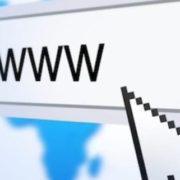I stole this post from my other website, Robert Crain.com.au. You see, I’ve been a bit busy of late, and haven’t had the time to write anything fresh for you. But I will, I promise.
————————————————————————–
Lately, I’ve been talking to a few people about website security, and the reasoning behind the importance of maintaining a totally secure website, especially when customers / clients pass to you extremely sensitive information, such as their names and addresses, as well as financial information such as credit card numbers.
Another major problem we, as website owners face, is that people generally stick with one or two passwords that they use for everything they do online – it’s not very smart.
Hackers will continue to attempt to gain access on the most vulnerable websites (no security), but you may be surprised to know that they’ll also attempt to hack into secured websites to try and ‘beat’ its’ security.
As an owner of several e-commerce websites, I see hackers try to gain access on an almost daily basis, but when they do try, they bombard your website through ‘brute-force’, and it can make your site ‘crash’, preventing customers access, and costing you money through potentially lost sales.
Below is a screenshot of one of my sites that had been under attack by Chinese and Russian hackers for about a week. I’m proud to say that the website in question did not slow down, nor did it crash. The hackers did not gain access, and it was business as usual on the front end. This particular plugin (Cerber), is just but one of ‘several’ security layers protecting my sites, and I must stress, this plugin alone will not prevent people gaining access to your site. What website owners should understand, is that we cannot stop hackers trying to gain access, but we can deny them access.

I often use the following analogy about my security –
Imagine having to walk through ‘a number’ of doors to get into your house, each 2 metres apart, but you had to enter a different 12 digit code, then insert 3 keys in each door, simultaneously. You’ll never get inside.
I’ve been asked dozens of times over the years to help clients that have attempted to do things themselves, only to ‘break’ their website security without even knowing it. They ‘thought’ they were doing the ‘right thing’ after reading self-how-to-do websites.
The problems that may result include the following;
- A weaker website
- Risk of losing sensitive client data
- Risk of losing clients / customers due to lack of security
- A reputation for not securing sensitive information
- Possible legal consequences for lack of securing customer information
- Complete website rebuild
Securing your website is the most important thing you can do for your business, as the cost of NOT doing anything could seriously place your business, and your future, at risk. Do you really want to lose everything because you were (and be honest here) too lousy to spend a couple of hundred dollars for a professional, to protect it?
Hackers don’t care about you, but believe me when I tell you this – You SHOULD SERIOUSLY worry about them, and what they could do to your website / business / future.
Don’t think that I’m an alarmist, trying to catch you out by making you feel vulnerable to hackers. Search news websites about website security.
Google now requires all sites to be secured. This is not to say your website won’t work, but what it means, is that secured sites WILL rank higher in their results.
External Link – Avoiding the Not Secure Warning in Chrome.
Here’s another interesting read about website security – We Analyzed the HTTPS Settings of 10,000 Domains and How It Affects Their SEO — Here’s What We Learned. Having an SSL on your website is just part of the equation.
Save yourself the nightmare of having to deal with the consequences of NOT doing anything, and Contact Me today so we can start working on securing your website. Any information you provide to me through this website is secured. I will not ask you for financial details, such as your Credit Card details. Any payments you forward to me, will be through direct deposit into an account specified via email, after we have agreed on terms and price.
Ultimately, it’s your decision whether or not to use the services of a professional like me, to secure your website properly.
Let’s get working on your website today, so you don’t have to worry!




